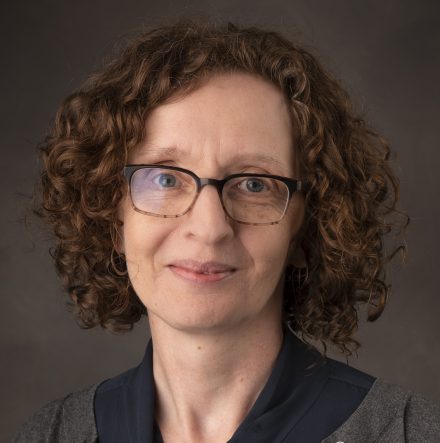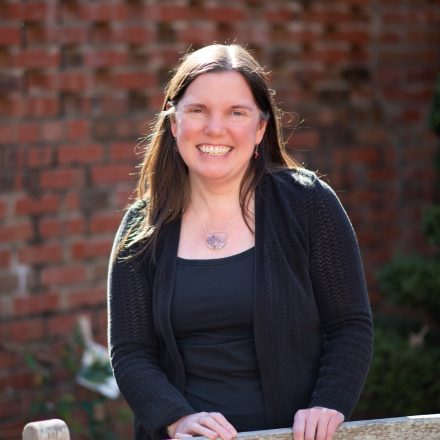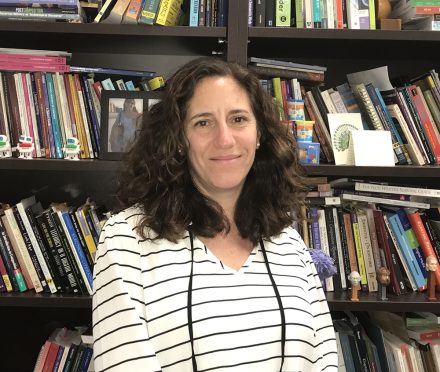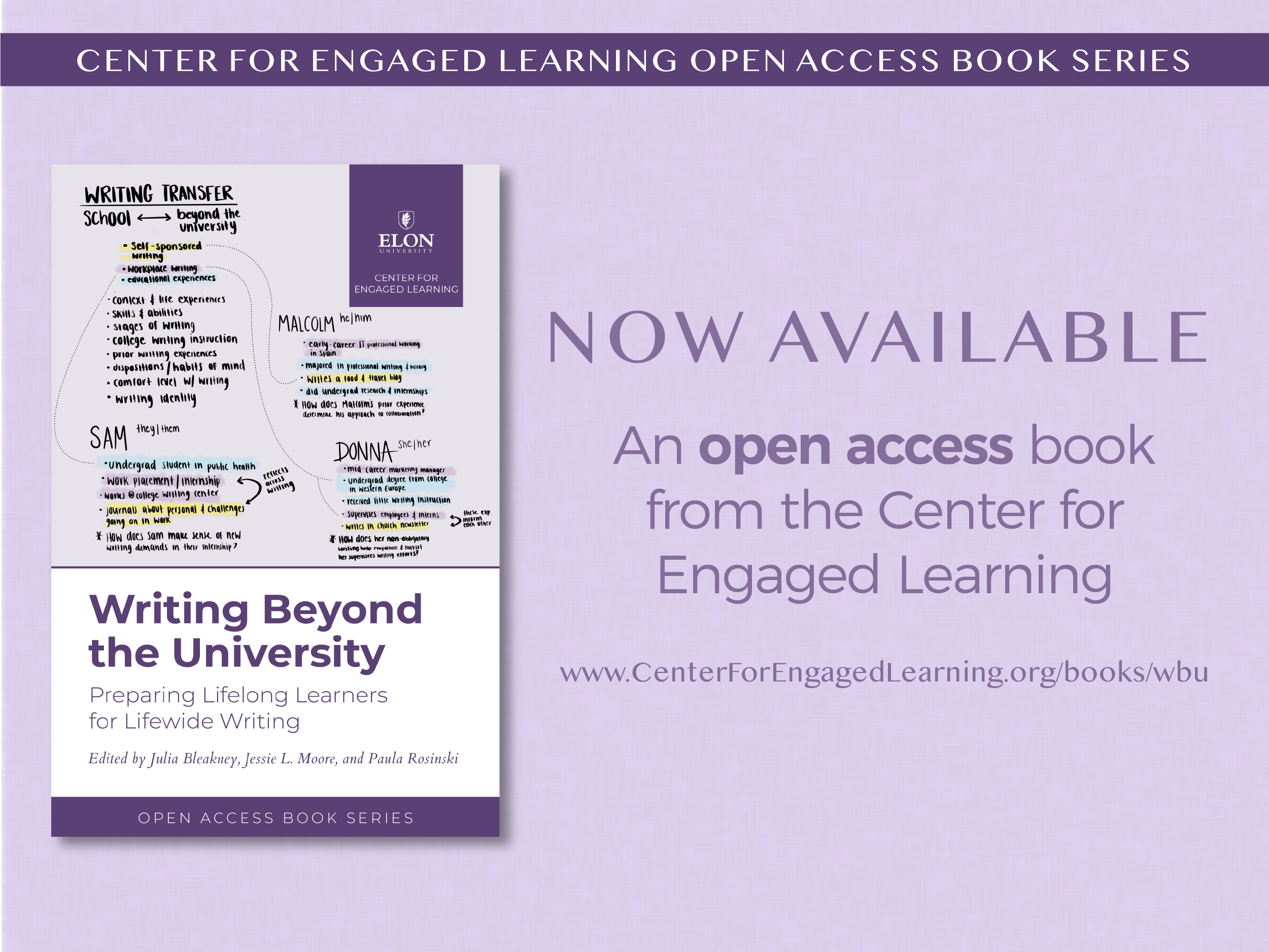"Writing Beyond the University: Preparing Lifelong Learners for Lifewide Learning" was published by the Center for Engaged Learning.
The Center for Engaged Learning (CEL) has recently published a collection co-edited by Elon University faculty Julia Bleakney, director of The Writing Center and associate professor of English; Jessie L. Moore, director of The Center for Engaged Learning and professor of professional writing and rhetoric; and Paula Rosinski, director of Writing Across the University and professor of professional writing and rhetoric.
Chapter authors include Elon University faculty members Li Li, Heather Lindenman, Travis Maynard and Amanda Sturgill.

“Writing Beyond the University” is part of CEL’s Open Access Book Series and can be downloaded online for free. The collection introduces higher education faculty, staff and administrators to research on how all members of a campus community can prepare learners to be effective writers beyond the university, in personal, professional, and civic contexts.
“Writing Beyond the University” examines the importance of writing in higher education for lifelong and lifewide learning. The book shares research on writing in a variety of co-curricular spaces, such as student life, employment, career services, and internships. This edited collection bridges writing across courses, disciplines, and professions using research from multi-institutional studies conducted by participants in the 2019-2021 research seminar on writing beyond the university.
Professor of Student Engagement in Higher Education, Institute for Academic Development at the University of Edinburgh Catherine Bovill said, “Expanding on previous writing transfer research, this important new book demonstrates the power of connecting writing that takes place inside and outside the university. The editors and authors provide us with diverse research, experience, and insights from around the world to help us to envisage possible and desirable writing practices.

“We are encouraged to value the writing students do outside the university, which can be built upon to inform their university writing. Importantly, this book also provides evidence and impetus for university colleagues to ensure that we embed the best writing approaches and resources to enable students to maximize the benefits of writerly practices for their future lives and careers,” Bovill added.
The book is divided into three sections. The first section, “Adaptability and Learning to Write as a Lifelong Process,” operates as an introduction to the experiences that students will likely go through in relation to writing during and after graduation. These first three chapters examine how writers draw on and adapt what they have already learned in order to apply it in different ways.
Section two, “Supporting the Writing and Writing Experiences of Lifelong Learners,” builds on the information from section one and applies it to writing across a variety of lifestyles and professions. This section includes seven chapters that outline ways writers adapt their writing strategies for new contexts.

The third section, “Facilitating Writers’ Ongoing Self Agency and Networked Learning,” closes out the book with take-aways that provide a framework for assignments that prepare students for the versatility of writing across a lifetime. The content in these last three chapters explores writers’ ongoing self-agency as they take what they learned from college into the next stage of their lives.
Readers can access supporting materials on the book website for free.
The Center for Engaged Learning Open Access Book Series features both authored books and edited collections that contain concise peer-reviewed information on research-informed learning practices. The series offers an alternative publishing option for high-quality engaged learning books that align with the Center’s mission, goals, and initiatives.



